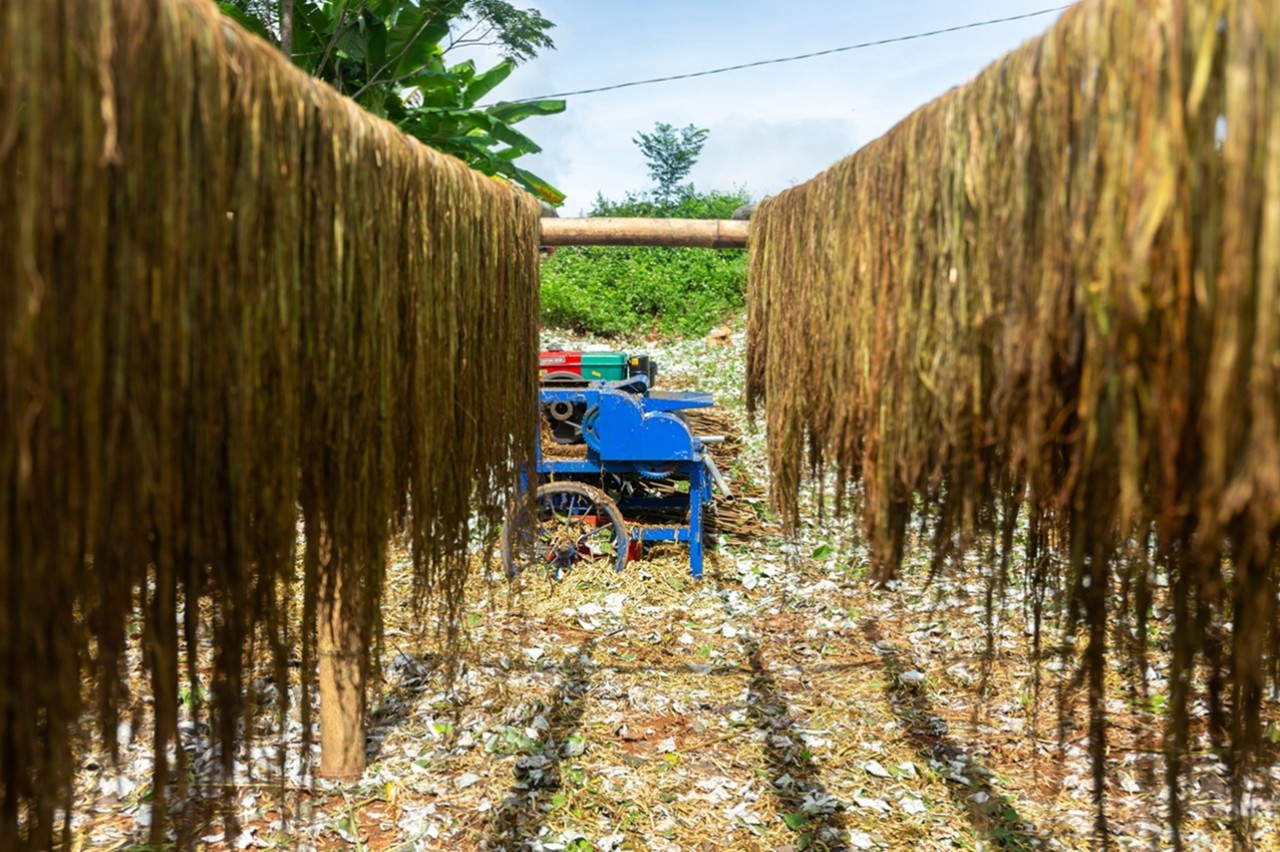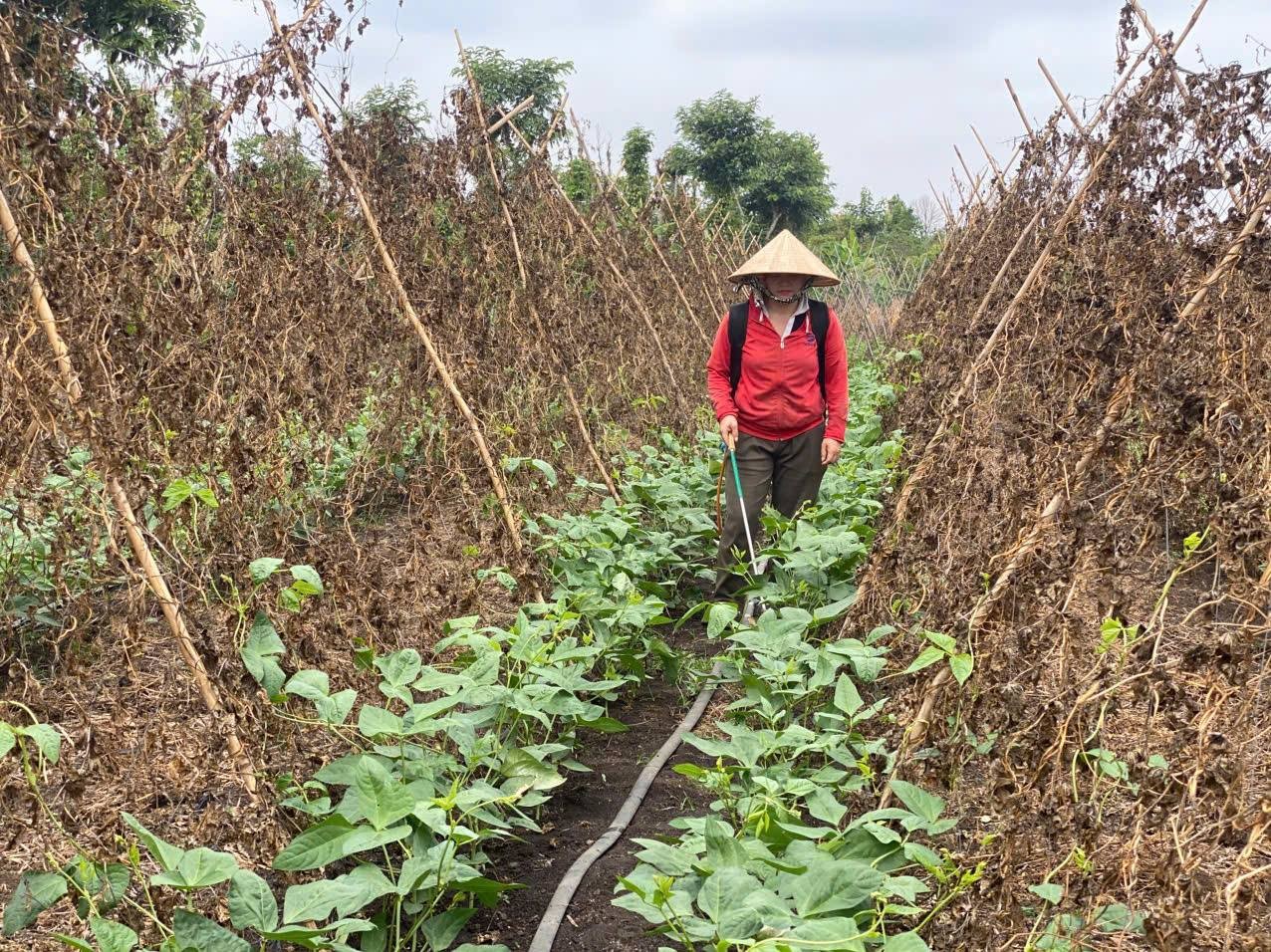Empowering Ethnic Minorities Women through Village Savings and Loan Groups
With the support of Procter & Gamble (P&G) Group through CARE International in Vietnam and the Central Committee of the Vietnam Women Union, after four years of implementation in 18 provinces in the country, the project "Reach to Excel: Promoting Financial Inclusion for Ethnic Minority Women" has supported the development of more than 500 self-managed village credit savings groups (VSLA) with more than 11,000 women participating in savings mobilisation and small-scale lending.
The project result was showed at a ceremony held in Hanoi on October 17 with the participation of representatives from CARE, P&G, Vietnam Women Union and two participants in the VSLA.
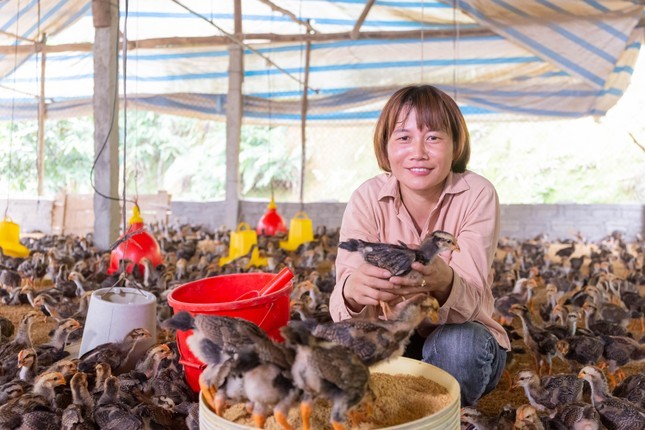 |
| A Yen Bai woman gets loans to raise chickens. Photo: CARE International in Vietnam |
From January 2018 to December 2019, CARE cooperated with P&G to implement the project "Reach to Excel: Promoting financial inclusion for ethnic minority women" in four mountainous provinces in Northern Vietnam, including Hoa Binh, Son La, Dien Bien and Bac Kan.
Promoting Financial Inclusion
Data from the World Bank in 2017 (Findex) shows that only 30% of adult men and 31% of adult women in Vietnam have access to formal financial services, one of the lowest rates in East Asia.
Based on gender analyses conducted by CARE, women face more difficulties in accessing finance and are negatively impacted by gender inequality and traditional cultural norms.
Studies have also shown that with financial decision-making and agricultural production in the family, the husband often has a decisive say in livelihood and significant expenditures. It also dramatically affects decision-making and women's participation at the community level.
To tackle the barriers, the Village Credit Savings Model (VSLA) was born - the informal, self-selected groups of people, mainly women, who pool their money into a fund from which members can borrow. The money is paid back with interest, enabling the funds to grow.
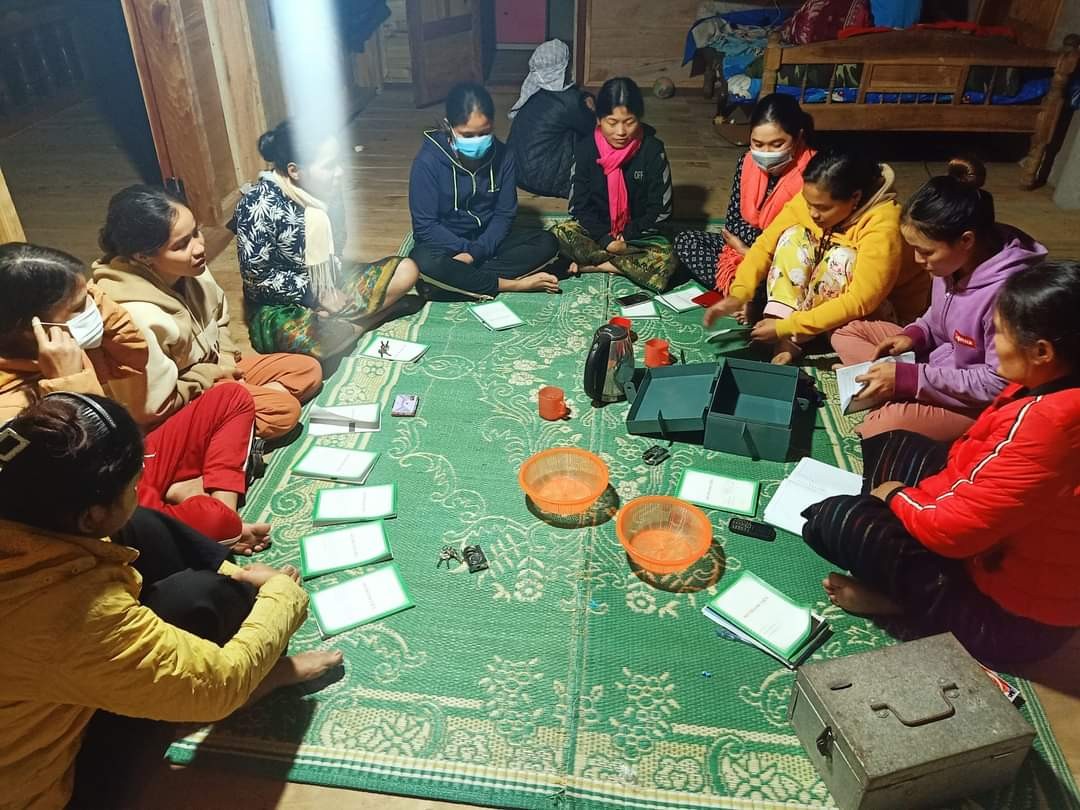 |
| VSLA members in Ta Long commune of Quang Tri province, gather to save and borrow money on top of exchange experiences in farming and other issues. Photo: CARE International in Vietnam |
Started by CARE in 1991 in Nigeria and implemented in Vietnam in 2010, the Village Credit Savings Model (VSLA) is based on the three principles of Voluntary Participation, Self-Management and Self-Responsibility, promoting the principles of openness, transparency, and equality for all members.
Accordingly, 15 to 30 people join to form a savings group wherein members meet regularly to contribute savings and participate in financial skills training. When the group has saved enough funds, loans are made available to members for household and micro-enterprise use. Loans are repaid with interest at a pre-agreed rate and members pool savings with deposits increasing up to 60% annually.
Once groups are ready, they have the opportunity to link to formal financial services, gaining added security for their savings and access to additional financial products.
Through cooperation with P&G, CARE has established 260 self-managed VSLA groups, directly helping 5,196 ethnic minority women access loans and become more economically independent.
Many members of the VSLA group said they could save more money and invest better in their children's education, household livelihoods and income-generating activities.
In the project's second phase, from December 2020 to the end of December 2021, 287 VSLA groups were established with 4,185 female participants. In the first year, the groups mobilized VND 9.35 billion (USD 384,200) in savings and gave 2,427 members loans to develop their livelihoods.
In the first half of 2022, there were 269 groups with 4,058 members, which mobilized VND 5.62 billion (USD 230,900) in savings, and 1,416 members received loans to finance their livelihood development.
The VSLA model effectively supports women and families in livelihood development activities, contributing to ensuring households' financial security.
Empowering Ethnic Minorities Women
K'Luyen, a K'Ho ethnic in Lam Dong province, said that VLSA’s mutual fund has helped many members with small loans, from growing coffee or pepper, growing mulberry and raising silkworms, to buying petrol and performing irrigation.
At the beginning of the project, VSLA members were hesitant to lend due to a fear of people defaulting and a loss of savings. But now, needy members could easily access small loans and prevent them from seeking other capital sources, like ‘black credit’.
Providing training had a significant impact on lending practices. As they became more confident in their business skills, members started providing larger business loans.
Meanwhile, Ho Thi Nho, from Van Kieu ethnic group in Quang Tri province, shared that in her group, members borrowed to buy books and pay school fees for their children; supporting small-scale livelihoods such as buying cows, buffaloes and goats to raise or grow melaleuca, cassava, wet rice, even in case their families' member are sick or any urgent thing comes up.
During the Covid-19 pandemic broke out, members of her group and even herself borrowed from it, to make ends meet and restore production.
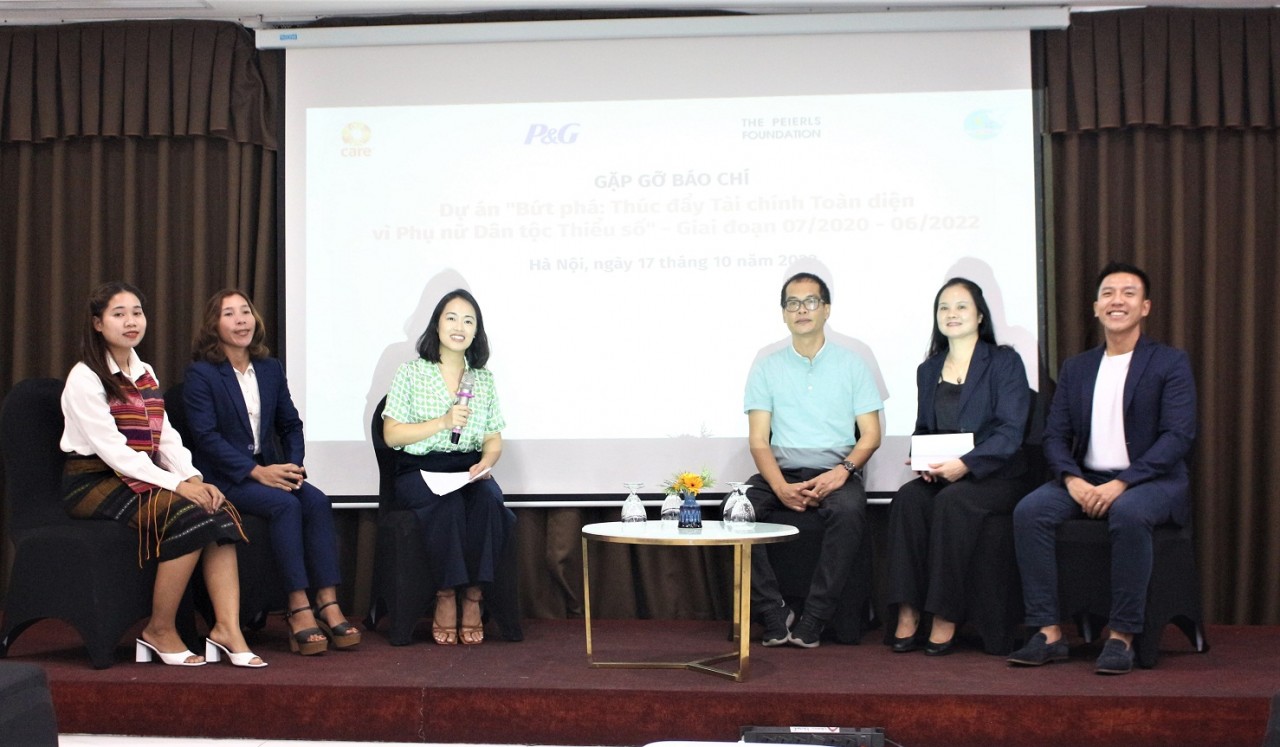 |
| K'Luyen and Ho Thi Nho (far left) at the ceremony of introducing results of the project "Reach to Excel: Promoting Financial Inclusion for Ethnic Minority Women". Photo: VNT |
According to representative from the Vietnam Women Union, VSLA group is operating well not only in savings but also in attracting members to training and empowering activities. It is thanks to such training that women affirm their role, express their ideas better, and are no longer shy when speaking in front of the public. Women participate more in decision-making at the family level and even at the community level, with increasingly more women taking up leadership roles, providing them an important resource to fully tap their potential. With this model, men are even willing to support their wives in the household.
Nguyen Duc Thanh, project manager, CARE International in Vietnam, said that the next direction of the project is to support the development of production, business and services to enhance the economic empowerment of ethnic minorities women, especially vulnerable groups. In addition, towards building economic organisations led by women such as cooperatives, cooperative groups, among others.
| Globally, more than 70% of the low-income population is unbanked, 90% of whom do not have access to savings or credit. Their earning potential is limited with very little cash flow. Their need for financial services is very high but access and capacity to utilize those services is limited. Initial loan demand is very small and often, commercial banks do not cater to this customer segment. VSLAs work well with unbanked people because they are simple and can be easily adapted to many contexts; requiring no physical infrastructure and no outside investment; offering members transparency in all transactions. At the same time, enhancing social ties among member and through strong group discipline, ensure efficient fund management; and provides a low-risk opportunity for very poor households to improve their well-being. |
| Pham Thi Huong Giang, member of the Women Union Presidium and head of the Committee to support women in economic development, said: This model is very suitable for ethnic minority women, helping them to form the habit of saving, self-management and the community to support and help each other in difficult times. Through the model, the women union has also communicated on the state's legal policies related to ethnic minority areas and other necessary knowledge for women such as organizing their lives, growing their family income and promoting gender equality. Le Kim Dung, country director of CARE International in Vietnam, affirmed the organization's commitment to cooperation with the Vietnam Women Union. The VSLA model is considered the starting point to help group members connect and access other forms of financial services and be part of an inclusive financial ecosystem in which everyone has the right to participate. The approach and characteristics of the VSLA model are very consistent with the goals of the Women Union in the project 8 implementation process. CARE commits to accompany and provide technical support with the Central Committee of the Women Union in the next five years to carry out activities to achieve the set goals effectively, she said. |
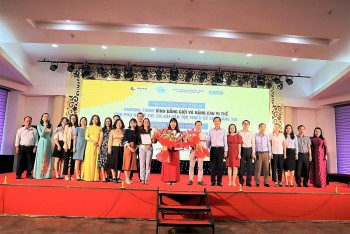 | Gender Equality and Empowerment for Ethnic Minority Girls in Quang Tri The protection, care and education of children, especially those from ethnic minority groups, remote, border and island areas, have always been a priority for Vietnam. |
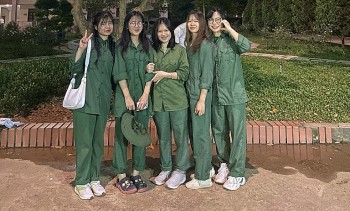 | Letters from a Frenchman Inspire Vietnamese Mountain Girl Lang Thi Ngan (2002) grew up in Tu Do mountain commune, Quang Hoa district, Cao Bang province. Due to difficult living conditions, studying is therefore ... |
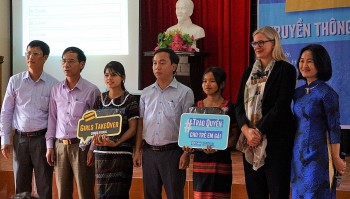 | Swedish Ambassador to Vietnam Participates in Girls Takeover Series in Quang Tri Swedish ambassador empowered Vietnamese girls to take the lead through annual series “Girls takeover” on occasion of the 2022 International Day of the Girl Child, ... |
Recommended
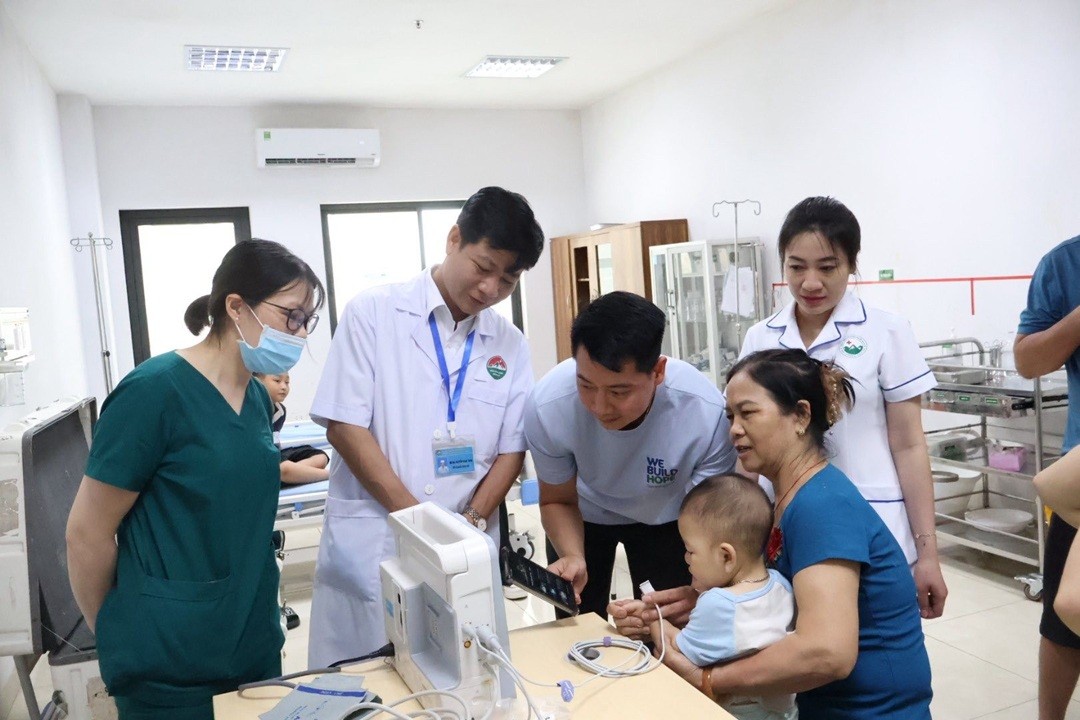 Viet's Home
Viet's Home
24 Children with Disabilities in Northern Provinces Received Free Surgery
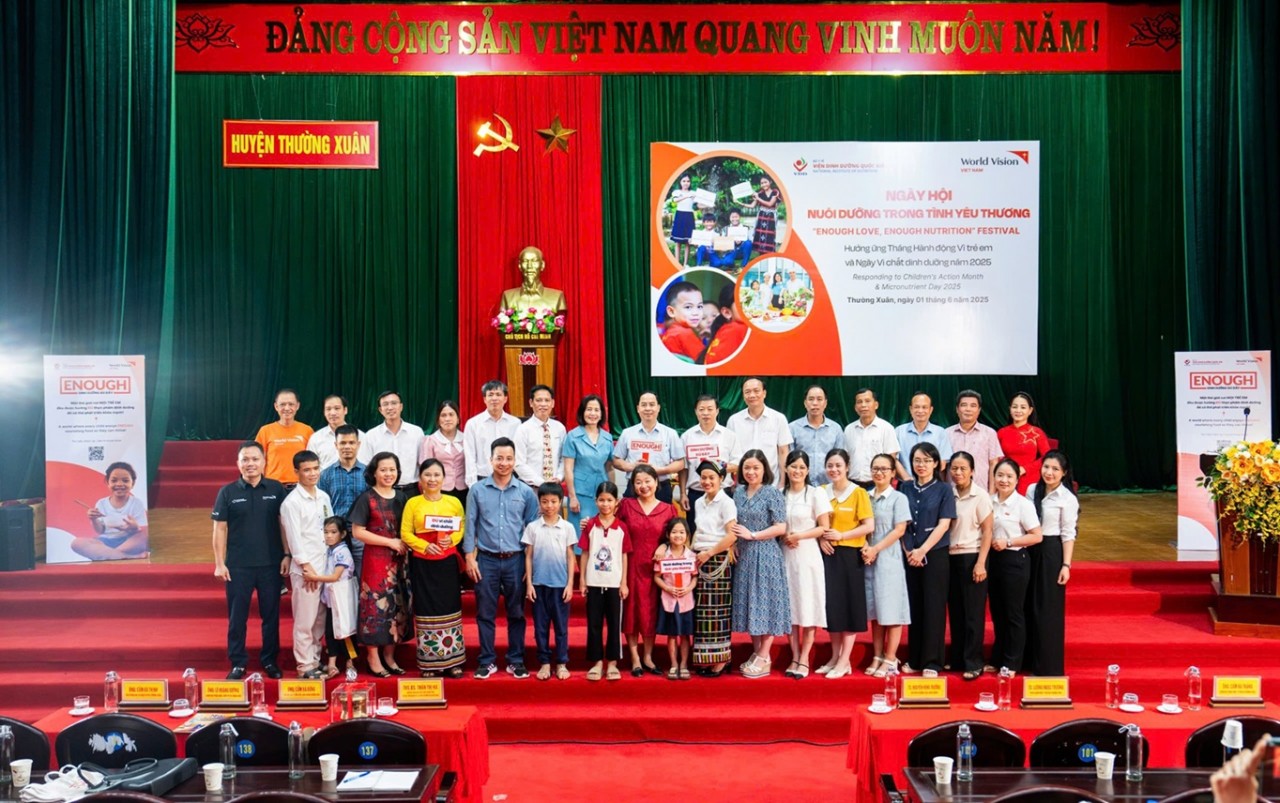 Viet's Home
Viet's Home
World Vision Promotes Comprehensive Nutritional Care for Vietnamese Children
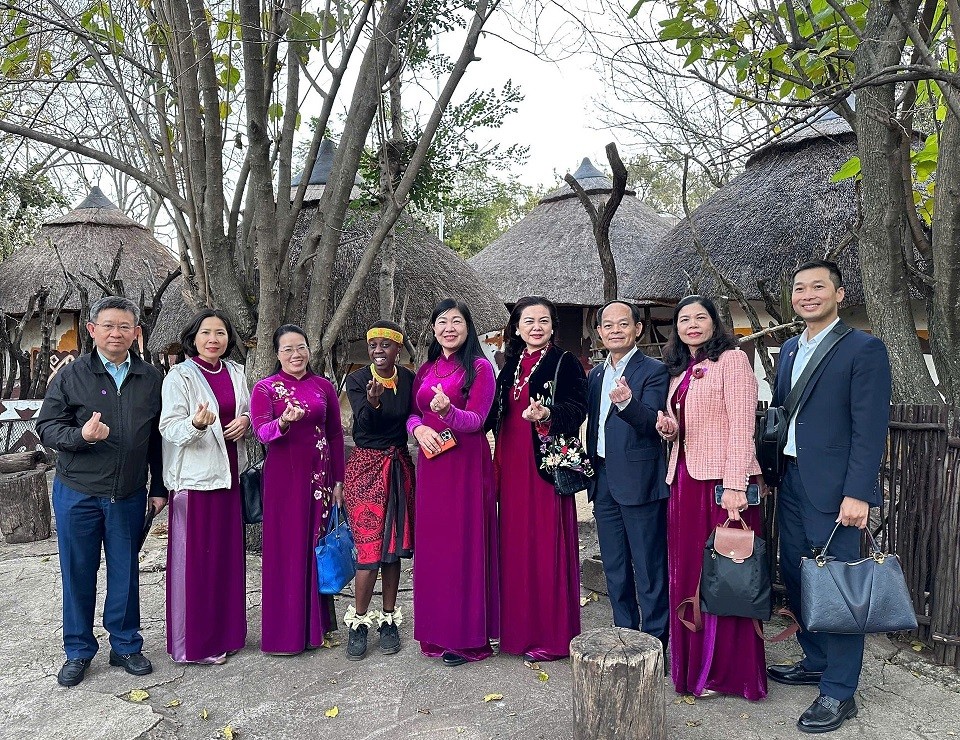 Viet's Home
Viet's Home
Hanoi, South Africa Strengthens People-to-people Exchanges, Expands Multi-sector Cooperation
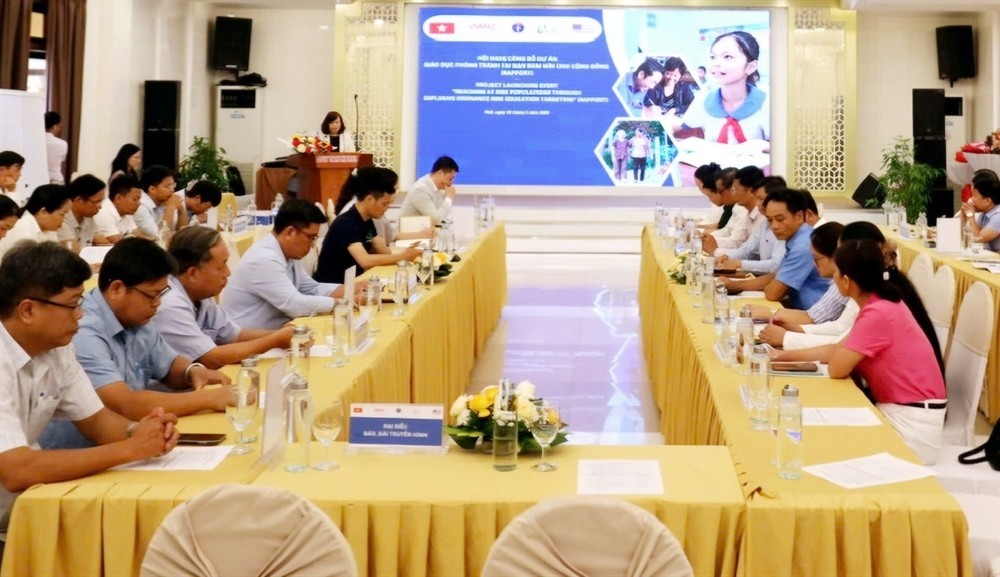 Viet's Home
Viet's Home
Hue City to Raise Awareness on Mine Accident Prevention
 Focus
Focus
Vietnam Leaves Imprints on the World Peacekeeping Map
 Viet's Home
Viet's Home
“Global Vietnamese Singing 2025” - Connecting Hearts Longing for Homeland
 Viet's Home
Viet's Home
Vietnam’s People's Public Security Force Actively Contributes to UN Peacekeeping Operations
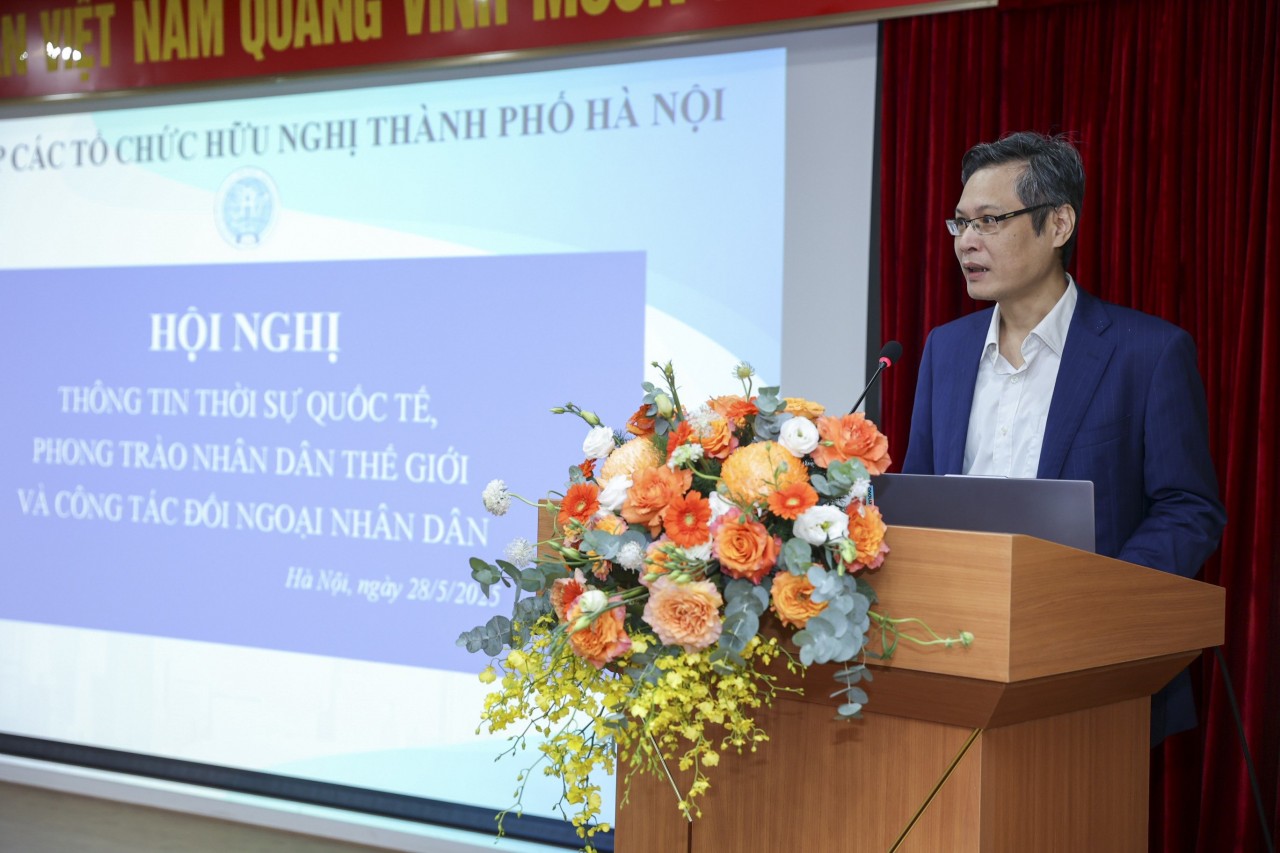 Viet's Home
Viet's Home

